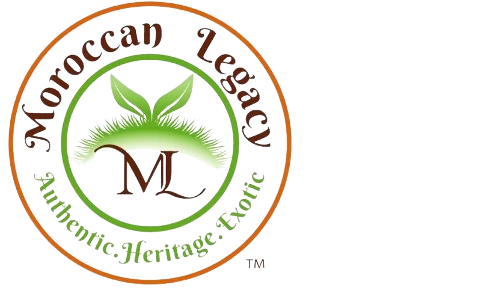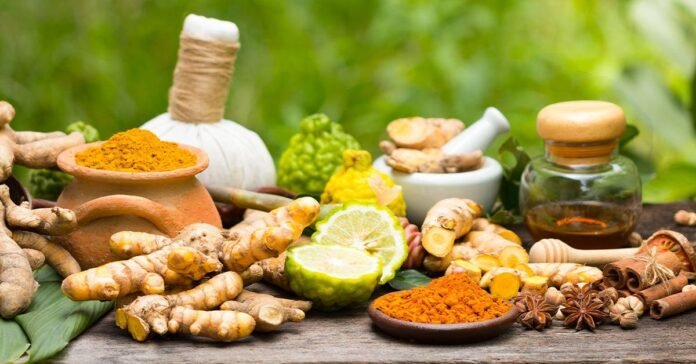Introduction
Traditional Moroccan medicine: Moroccan conventional healing practices are centuries old and deeply rooted in the country’s cultural traditions. While modern Western medicine is prevalent today, many Moroccans still hold ancient remedies and traditions close to their hearts. In this blog post, I hope to provide an insightful overview of some of the most critical aspects of traditional Moroccan medicine and healing practices.
Morocco has a long and rich history of traditional healing methods. Various indigenous Berber tribes that inhabited North Africa for thousands of years passed down medical knowledge through oral tradition. Their natural remedies were influenced by neighboring Arab, Sub-Saharan African, and Andalusian traditions as well. Even today, traditional healers known as raqi or rakka are respected members of Moroccan communities. Their practices are considered a cultural heritage.
While modern science has undoubtedly brought medical advancements, traditional Moroccan healing offers a holistic perspective focused on aligning the mind, body, and spirit for well-being. Its gentle, natural remedies also help preserve biodiversity and environmental sustainability. Learning about this culturally significant tradition gives us a deeper appreciation of Moroccan history and way of life.
In this post, I will explore several important aspects of traditional Moroccan medicine, including:
- Common healers and their roles
- Holistic health philosophy and practices
- Popular herbal remedies and plants used in traditional Moroccan medicine
- Spiritual healing techniques like faith healing and exorcisms
- Influence of Islamic theology on Moroccan traditional healing
- Continued role of conventional medicine alongside modern practices
I hope this overview provides fascinating insights into Morocco’s rich cultural heritage of natural healing. Please feel free to contact me if you have any other questions!
Common Traditional Healers in Morocco
In traditional Moroccan society, specialized healers fulfill essential roles in maintaining community health and well-being. Some of the most prominent conventional healers include:
- Rabbi/Raqi: Also known as faith healers, these are healers often trained from a young age through apprenticeship under another raqi. They use spiritual techniques focused on healing through recitation of verses from the Quran and prayers. Faith in God and the healing powers of sacred scripture are integral to their practices.
- Taleb/Marabout: Talibs or marabouts are healers with reputed spiritual powers specializing in counseling, exorcisms, divination, and spiritual protection practices. They often claim lineages connecting them to critical Muslim saints and shrines. Faith in their baraka (blessings conferred by holy figures) brings the sick to seek their healing services.
- Taleb/Lemtif: Lemtifs are traditional midwives with generations of experience assisting births and treating women’s health issues. They acquire knowledge of herbal remedies, prenatal care, obstetrics, and gynecology through oral tradition and hands-on training. Their role remains vital in rural communities that may lack modern maternal care access.
- Ainou/Heqqi: Herbalists specialize in using plants, minerals, and natural substances for healing. They can identify and prepare remedies for various illnesses through extensive training in herbal pharmacopeia. Their remedies treat physical ailments and maintain wellness by balancing the body’s humors.
In addition, trance healers, bonesetters, and spiritual massage therapists use techniques like riyaha to fulfill healing roles. Traditional healers often work closely with imams and spiritual advisors in an integrated model. Modern practitioners may also incorporate Western medical knowledge alongside conventional methods.
Holistic Traditional Moroccan Health Philosophy
At the core of Moroccan traditional healing lies a holistic view of health and well-being. Rather than seeing the body as separate, physical and spiritual components are understood as deeply interlinked. Maintaining harmony and balance within an individual and their environment is critical to overall wellness. Some of the holistic philosophy’s fundamental concepts include:
- Humoral Theory: Traditional Moroccan medicine recognizes the four humors of blood: phlegm, yellow bile, and black bile. Health relies on a harmonious balance between these bodily fluids, while illness arises from imbalances that can be corrected through diet, herbal remedies, and lifestyle practices.
- Connection to Nature: Natural elements like the four classical elements of earth, water, air, and fire are seen as integral to human constitution. Following natural cycles and respecting the environment supports health on micro and macro levels.
- Mind-Body Integration: Spiritual, emotional, and psychological wellness impacts the physical dimension and vice versa. Healers may employ meditation, prayer, ritual, and counseling to alleviate afflictions of the soul and the body.
- Prevention-oriented: The focus is maintaining equilibrium to forestall illness rather than reacting to symptoms. Healthy daily routines, balanced nutrition, and herbal tonics strengthen natural defenses against disease.
- Community-Based: According to this perspective, one’s social relations, responsibilities, and surrounding energies from the community, nature, and spirit worlds profoundly influence individual health and healing prospects.
This holistic paradigm sees health as a dynamic process involving the mind, body, and environment rather than an absolute state. Healers restore equilibrium on multiple levels through tailored remedies and lifestyle guidance.
Popular Herbal Remedies in Traditional Moroccan Medicine
Morocco’s diverse geography cultivates a rich pharmacopeia of medicinal plants incorporated into traditional healing practices for centuries. Some of the most commonly used plants and their applications include:
- Argan Oil: Extracted from the endemic Argan tree’s nuts, this golden oil nourishes skin and treats rheumatic pain when ingested or massaged into muscles. It also supports heart health and estrogen balance.
- Aloe Vera: Known as saber, this succulent’s thick leaves contain a soothing gel applied topically to burns, wounds, and skin irritations. It also improves digestion when taken orally.
- Almond: Sweet almonds called lupus are enjoyed as a snack but also in remedies for coughs, colds, and respiratory relief when infused as a tea. Almond oil massage benefits nails and hair.
- Olive: Morocco’s symbolic tree symbolizes wellness, longevity, and vitality. Unrefined olive oil enters cooking and body care products, while olive leaf extracts aid people with diabetes and those wanting blood pressure control.
- Lavender: The fragrant herb California grows wild on hillsides. Its flowers enter sachets and pillows for relaxation but also disinfect minor cuts, reduce scarring, and soothe insect bites when used topically.
- Mint: Various mint species like na’anaa calm digestive issues, regulate menstrual symptoms, and relieve respiratory congestion through tea. Its refreshing aroma also lifts the mood.
- Rose: Red rose petals called wards symbolize love and beauty in Moroccan culture. Their hydrosol hydrates skin while infusions relieve stress, anxiety, and hot flashes for women.
- Hemp: Medical cannabis or kif holds venerable status as an analgesic, anti-inflammatory, and appetite stimulant, easing issues like chronic pain, nausea, and wasting diseases when consumed.
This overview barely scratches the surface of the rich botanical wealth traditionally garnered from Morocco’s geography for preventive healthcare and healing purposes. Sustainable ethno-pharmacology protects these living medical legacies.
Spiritual Healing Techniques in Traditional Moroccan Medicine
Faith and spirituality play a profound role in traditional Moroccan healing approaches. Some notable spiritual healing techniques include:
- Quran Recitation (Ruqyah): Healers recite verses from Islam’s holy book as a sacred incantation believed to heal diseases by God’s permission. It targets both spiritual ailments like the evil eye and physical illnesses.
- Prayer (Du’a): Supplicating God for mercy, protection, blessings, and healing forms a core healing method. Special prayers focus on healing intentions.
- Exorcism (Taʿzīyah): Expelling invisibly possessing jinn or spirits causing imbalances linked to madness, seizures, or sickness involves Koranic recitations, sacred objects, and rituals by miracle workers.
- Amulet Preparation (Talsim): Protective talismans contain sacred verses and symbols inscribed on leather or metal to avert harm like the evil eye. Herbal infusions reinforce their abilities.
- Aromatherapy (Tihama): Blending healing powers of plant essences, scents, and their vibrations with prayers during massage or meditation to treat illnesses. Rosewater holds special significance.
- Spiritual Bathing (Istimra): Sacred bathing using Zamzam well water, herbs, and prayer ceremonially washes away diseases and restores equilibrium. Some bathe newborns for blessings.
- Diving (Ughya): Seeking spiritual visions, answers, or supernatural healing in meditative trances under the guidance of hooded healers using music, drumming, and plants.
These spiritual healing methods harness divine and unseen forces to maintain well-being through faith in God’s ultimate healing power alongside natural and herbal remedies. They tap transcendent human abilities while reinforcing communal solid bonds.


